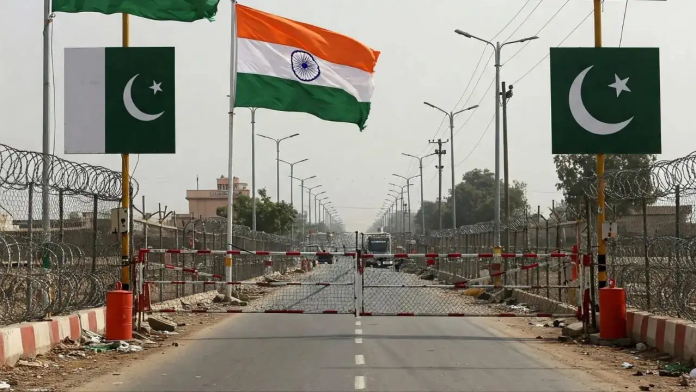India and Pakistan plunged into their most severe military confrontation in decades, with cross-border missile strikes and artillery exchanges raising fears of a full-scale war between the nuclear-armed neighbours.
The crisis, triggered by a deadly terrorist attack in Indian-administered Kashmir last month, has seen both sides trade accusations of aggression, civilian casualties, and claims of downed fighter jets, deepening a crisis that threatens regional stability.
Operation Sindoor: India’s retaliation and Pakistan’s response
On 6 May 2025, India launched Operation Sindoor, a series of missile strikes targeting what it called “terrorist infrastructure” in Pakistan-administered Kashmir and Pakistan’s Punjab province. New Delhi claimed the strikes were a direct response to the 22 April massacre of 26 Hindu tourists in Pahalgam, which it blamed on Pakistan-based militant groups Lashkar-e-Taiba and Jaish-e-Mohammed.
Indian officials emphasised the operation was “focused, measured, and non-escalatory,” avoiding military facilities and aiming solely at militant training camps.
Pakistan, however, rejected the claims, asserting that Indian missiles struck civilian areas, including mosques and residential neighbourhoods. Islamabad reported 26 civilian deaths and 46 injuries, with a three-year-old among the casualties.
Retaliatory shelling by Pakistani forces killed at least 10 people in Indian-administered Kashmir, according to local police. Pakistan also claimed to have shot down five Indian fighter jets, including advanced French-made Rafales, and captured Indian pilots, assertions India has neither confirmed nor denied.
Escalating rhetoric and regional risks
The conflict ignited fiery rhetoric from both leaders. Indian Prime Minister Narendra Modi vowed to pursue terrorists “to the ends of the earth,” framing the strikes as a defence of national sovereignty. Meanwhile, Pakistani Prime Minister Shehbaz Sharif condemned India’s actions as a “blatant act of war,” warning of a “befitting reply.” Defence Minister Khawaja Asif accused India of targeting civilians.
This has been initiated by India … If India backs down, we will definitely wrap up this thing. But as long as we are under attack, under fire, we have to respond. We have to defend ourselves.
The stakes are perilously high, as both nations possess over 170 nuclear warheads each, and experts warn that miscalculations could spiral into a catastrophic conflict. Derek Grossman of the RAND Corporation noted the strikes represent a “very serious escalation” with a “low but real” risk of nuclear engagement.
The UN Security Council convened emergency talks, with Secretary-General António Guterres urging “maximum restraint” and highlighting the global ramifications of a war.
International reactions and diplomatic efforts
The international community scrambled to contain the crisis. The United States, while urging de-escalation, faces a delicate balancing act as a key ally to India and a wary observer of Pakistan’s ties with China. US President Donald Trump called the clashes “a shame” and expressed hope for a swift resolution, while Secretary of State Marco Rubio engaged in backchannel talks with both nations.
China, Pakistan’s “ironclad” partner, reiterated support for Islamabad but joined calls for restraint, wary of destabilising its Belt and Road investments in the region. Meanwhile, the UAE, Saudi Arabia, and Russia have been briefed by Indian officials, reflecting New Delhi’s efforts to legitimise its actions globally.
At the heart of the conflict lies Kashmir, a Muslim-majority region partitioned between India and Pakistan since 1947. The disputed territory sparked three wars and countless skirmishes, with both nations accusing each other of stoking militancy. India’s 2019 revocation of Kashmir’s semi-autonomous status further inflamed tensions, prompting Pakistan to liken the move to “annexation.”
The April Pahalgam attack reignited this powder keg. India’s suspension of the 1960 Indus Water Treaty, a cornerstone of bilateral relations, compounded the crisis, with Pakistan warning such measures could be deemed an “act of war.”
However, economic realities may temper escalation. Pakistan, grappling with a debt crisis and inflation, can ill afford prolonged conflict, while India risks undermining its global economic ambitions. Both nations also face domestic pressures: Modi’s national-oriented approach demands toughness, whereas Sharif’s government must appease a public outraged by civilian deaths.
